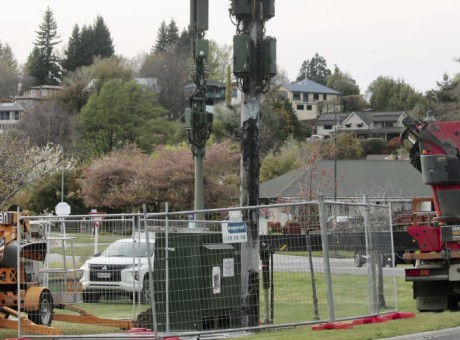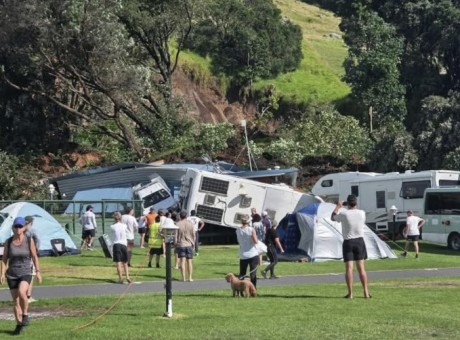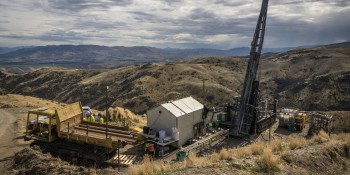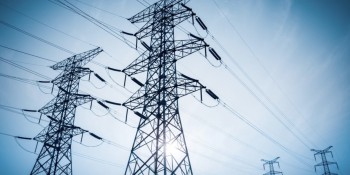How citizens' assemblies could resolve New Zealand's toughest debates
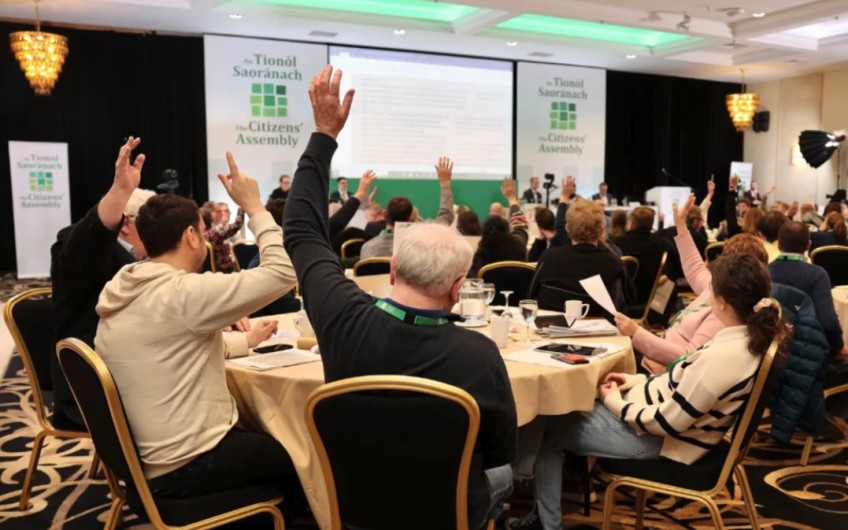
One Dublin weekend in 2013, Jonathan Moskovic made a curious observation that would change his life.
A thousand kilometres away in Paris, people had taken to the streets over marriage equality proposals. Hundreds of thousands joined the protests, and violent riots erupted.
"While in Ireland, 99 people were in a room peacefully discussing the topic and deciding to change the law," Moskovic says.
Moskivic was following the progress of Ireland's first ever Constitutional Convention - a group of 66 randomly selected citizens and 33 politicians who met one weekend a month over more than a year to thrash out potential changes to the country's constitution. It was a novel approach from a new government elected in 2011 on the promise it would make an array of changes to help the island nation recover from the worst financial crisis it had ever seen.
On the weekend the group tackled marriage equality, Moskovic considered the French and Irish approaches, and had "a revelation".
"That was the moment I fell in love with deliberative democracy.
"I realised in our polarised societies the only way to deal with issues like that is through true deliberation."
Both France and Ireland ended up legalising same sex marriage, but the process each country went through could not have been more different. While France endured divisive debates and even violence, barely a placard was waved in Ireland before it became the first country in the world to legalise same sex marriage by popular vote following a referendum.
Why the difference? In France, the decision was left in the hands of politicians. In Ireland, it was largely left to a group of ordinary people who took the time to weigh up all the options before making a considered recommendation for politicians to enact. This process is called a citizens' assembly, a developing form of deliberative democracy that is sweeping the world.
Citizens' assemblies originated in ancient Greece, but have made a resurgence in the last decade and are now commonly used throughout Europe, the United States, Canada and in Australia.
Since that weekend a decade ago, Moskovic has made a career out of his love for the process. Now an advisor in democratic innovation for the president of the French-speaking Brussels Parliament, he runs citizens' assemblies tackling issues from homelessness to biodiversity. He also advises governments all around the world on how to do the same.
A widening divide
There's no shortage of divisive issues in Aotearoa: euthanasia, cannabis, Covid-19 mandates and, most recently, issues raised over the Treaty of Waitangi are among the latest hot-button topics. But New Zealand has been slow to join the citizens' assembly party - the first few have only been carried out at a local council level this year.
Earlier this year, a group of eminent scientists at Auckland University warned Aotearoa's social cohesion is "straining at the seams". The looming general election would only highlight the country's "political fault lines", the researchers at the Koi Tū Centre for Informed Futures wrote in a paper, as we experienced increased polarisation fuelled by distrust in institutions, government and increased mis and disinformation.
"These are testing times," warned Auckland University Koi Tū director Sir Peter Gluckman, a former prime minister's chief science adviser. He urged special attention was needed to strengthen both institutional and social trust.
The warning seems only more relevant post-election, as protests over Treaty of Waitangi rights erupt across the country and discourse around race becomes ever more divisive. Loss of trust in government, institutions, media and democracy is in decline globally and New Zealand is not immune.
But what if there is a way to rebuild this trust? What if there is a way to have considered debates about tricky issues of national importance that doesn't lead to protestors gluing themselves to a Wellington road or defacing a museum exhibit? What if there is a way to reduce the noise created by polarising or extreme views and find workable solutions to seemingly irreconcilable issues?
Police in riot gear clear out the weeks-long anti-mandate protest at Parliament in Wellington in 2022. Photo: VNP / Phil Smith
If Ireland can do it, New Zealand can too, says Ireland's Electoral Commission chief executive Art O'Leary.
His current role was created following a recommendation from the country's first Constitutional Convention that he designed and ran in 2012. As well as recommending same-sex marriage be legalised, the group also suggested a host of other reforms, including the establishment of an electoral commission.
In 2016, O'Leary ran Ireland's second citizens' assembly - this time without the inclusion of politicians in the room - and to everyone's surprise, the group came up with a proposal to legalise abortion that went far beyond what most had been expecting.
"Our country, for the last 60 years, was unable to have a civilised conversation about abortion, because the minute the conversation starts, the people speaking retreat to the extremes and start shouting at each other," he says.
The citizens' assembly format changed everything.
"It provides a safe environment to have a conversation. There is zero tolerance for conflict in that room. You're allowed to express your opinion, whatever that opinion is, in complete safety, and people will be respectful of you too."
Irish Electoral Commission Chief Executive Art O'Leary speaks to a 2022 citizens' assembly on biodiversity loss in Dublin. Photo: Supplied
That assembly ended up making extensive recommendations for a much more liberal abortion regime than the government or media had been expecting and, because of this, the recommendations were largely panned by both institutions as unpalatable to the general population.
But the mood in that room was spot on, O'Leary says.
"The hundred citizens in the room voted 67 to 33, in favour of this liberal regime. And when the government put that question to the people, the result in the national referendum was 66-34."
This proved two things.
"First, that room was perfectly representative of the Irish people. Secondly, there are occasions where the people certainly are much further ahead in their thinking than the political system, and if you give citizens information they can be nuanced and sophisticated in how they approach something."
It was a "lightbulb moment", he says,
"Marriage equality and abortion were the two most intractable political problems that there had ever been in this country in decades and citizens' assemblies have led to a resolution in both."
Pro-choice supporters in Dublin celebrate the results of Ireland's referendum on abortion law reform in 2018 Photo: PAUL FAITH
Ireland has since run multiple assemblies, tackling issues such as biodiversity loss, local government and gender equality. The process has "transformed" Irish people and the Irish political system, says O'Leary.
It's been so transformational that O'Leary has provided advice to 41 countries on the issue.
"There's something going on in the world right now, and political systems are looking for a way that citizens can become involved in policy development and decision making. Citizens are crying out for their voice to be heard.
"It does appear as if we have found a way to manage those irreconcilable issues and it seems to work."
The recipe for successful debate
So how does a citizen's assembly actually work?
Experts say there are a few key ingredients that must be considered for a successful assembly: the citizens selected must, absolutely, represent the population; the question or issue posed must be one that is so complex or so divisive it has not been able to be solved by the usual political processes; the citizens must have control over the sources of information they receive and have time to digest it; and it must be very clear from the outset what a government will do with the recommendations made by the group.
Sydney-based New Democracy Foundation executive director Iain Walker has run dozens of citizens' assemblies at a local government level across Australia over the last decade, deliberating on topics as diverse as balancing council budgets to reducing alcohol-fuelled violence.
He says they work particularly well for topics where a middle ground is needed between arguments on the end of each extreme. "On issues on crime, tax, urban planning, anything where there's a real chance for electoral incentives to drive polarisation. This can be a great counterbalance," he says.
But there are also downsides to this process.
"It can be slow and expensive," Walker says. He estimates it costs about AU$1 million (NZ$1.1m) to hold a citizen's assembly on a national level. He argues that in some cases it would be worth it. Australia spent AUD$450m on its failed Indigenous Voice referendum earlier this year, and Walker believes the result may have been different if a citizens' assembly had tackled the issue first.
Political timing is also another barrier. "Short political terms means when there's an issue today, people want an answer tomorrow. We need issues where it's early enough for a government to pause and wait a few months to give citizens a chance to think and not react."
Time is essential for deliberative democracy, he says. Assemblies run by the Foundation are often held over six days, with each day spaced three weeks apart.
"It gives people a chance to slow down and think; it gives them a chance to pose questions. And the organisers, in the intervening three weeks, go and get answers."
Assemblies must also be designed to avoid manipulation by governments and outside interests, and participants must have control over the sources of information.
Transparent methods for recruiting participants are key. Walker initially sends out 30,000 invites to people who roughly match the census. Of those who opt in, a second random draw further refines the group according to the census by gender, age bracket, suburb and whether they rent or own their own home.
In Ireland, organisers also ensure there are people in the room who match other segments of the population, including those with disabilities, migrants or single parents.
Citizens are also paid for their time. In Brussels they receive a stipend of €83 a day (about NZ$145) and are allowed to bring a support buddy, who is also paid. Children's activities are provided onsite so parents can also participate.
A citizens' assembly organised by Wellington City Council this year to consider its long-term plan paid its participants $800 apiece, plus extra for childcare costs.
The whole project cost $88,936, which Wellington CIty Council engagement manager Lexy Seedhouse believes is "pretty cost-effective" considering the amount of effort involved.
Typically, the total cost of engagement over the long-term plan can be between $200,000 and $300,000, she says - although that could vary depending on the significance of the issues involved, the need to reach out across the whole city in different ways, the range of ways needed to do that, and meeting legal requirements.
"I think what was successful [about the assembly] was that they started out as a diverse group of strangers. One participant was a professor who had studied government for decades. Then we had another who was 16. One of the awesome things was the group themselves were so respectful of each other because they had a shared purpose and they were obviously motivated to contribute to the future of the city."
The assembly made a series of recommendations last month, and the council has agreed to report back on how their advice will be incorporated into the plan.
It goes a step further in Brussels, where, by law, politicians who disagree with recommendations must publicly explain why, says Moskovic.
"It adds a very strong pressure on the politicians, and they hate it."
It means that, of the more than 250 recommendations made by citizens' assemblies over the last few years, only two have been rejected by politicians, and local research shows the population's trust in institutions had increased..
Fostering trust in institutions has been especially important in a country like Belgium, which has a complex political system, Moskovic says. The country has nine parliaments, conducted in three official languages.
"We call it an institutional lasagna. We have so many layers and one of the major political problems is the lack of coordination between the layers."
Adding citizens' assemblies to the mix might seem counterproductive, but it actually improves the communication and decision making process, he says.
"It might look like it's adding an extra layer but in fact it is a transversal one - the sauce that goes from one layer to the next."
Is it time to talk, Aotearoa?
Belgium's success has also placed Moskovic in hot demand all over the world. He's recently been in Lebanon and Montenegro and is off to Kosovo next month to advise on how a citizens' assembly might ease ethnic tensions there.
He believes it's the "perfect tool" for deliberating minority issues, especially where people feel marginalised from the conversation, and its use as a peacekeeping tool is an emerging field of study.
With the possibility of a referendum on The Tīriti looming in the not too distant future - an idea that is already proving divisive - could a citizens' assembly tackle the issue instead?
Sir Peter Gluckman is part of a group of researchers sounding the alarm over deteriorating social cohesion in New Zealand. Photo: Supplied / University of Auckland
It's a resounding 'yes' from Gluckman, whose Koi Tū researchers have overseen the design and delivery of citizens' assemblies run by Auckland's Watercare and its council's long-term plan this year.
"A referendum would be a disaster. You've got a situation where there are very competitive views of the narrative; there are different versions of the English and Te Reo versions of the Treaty and it's a very complex and confused situation … and most people would not understand the nuances," he says.
How, or what, a citizens' assembly might look like in a New Zealand context still has to be worked through, but one thing is clear: "It needs to be a more deliberative and informed process. The Treaty affects everybody in New Zealand. There's a deeper discussion that has to be had on this particular issue."
O'Leary, who fondly remembers padding around Waitangi's wharenui in his socks during a state visit with the Irish president a few years ago, believes a citizens' assembly is just the forum to help New Zealand "ventilate" some of those issues.
"I always say that New Zealand is the place most like Ireland, outside of Ireland. So can citizen(s)' assemblies work in New Zealand? Of course they can.
"New Zealand has a deep appreciation of culture, you enjoy debating and learning. So of all the countries in the world, I think you have a better than even chance of doing a really, really good job with this."







